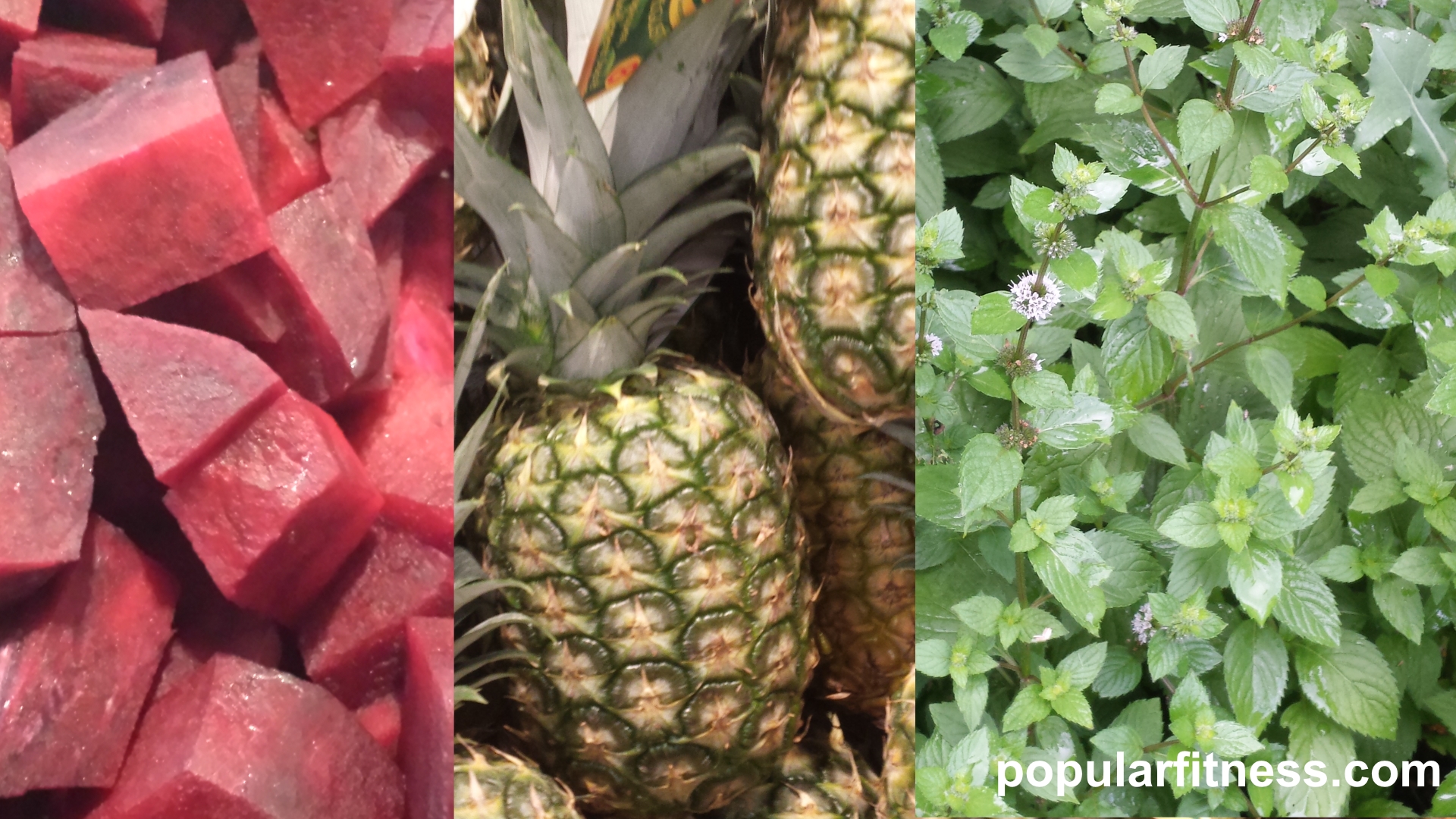
Provide the human body with the correct fuel, regular exercise and right amount of sleep and it will run optimally and take care of itself.
Eating healthy and the right foods is the key to keeping your immune system strong and functionally at its peak level. This particularly true when exercising or playing physically demanding sports because your immune system can take a temporary hit after physical exertion. Good nutrition and what food you eat afterwards will help to keep your immune system strong even in those cases. Of course, there are no foods that are absolute super cures or miracle cures, but they will give your body a strong fighting chance to stay strong, prevent you from getting sick or recover from illnesses much faster.
These are the foods that I have chosen. It’s a short list as there are many other excellent immune boosting foods to eat but these ones have helped me to boost my immune system and provide me with added energy to weight train and exercise.
Pineapple
It is a high source of Vitamin C which aids in the absorption of iron and manganese, plus it contains other essential vitamins and minerals.
It also contain bromelain which is a digestive enzyme which breaks down protein and may help in digestion, boost the immune system and may have anti-inflammatory properties. A great tasting fruit that is relatively inexpensive to buy and helps to maintain a healthy body.
Apples
Apples are loaded with vitamins, minerals and polyphenols. Perfect fruit for replenishing the nutrients in your body especially after a weight training workout or playing sports. They are a great source to replenish fluids in your body because perfectly ripe apples tend to be very juicy. Red apples also contain an antioxidant called quercetin which may help boost and fortify strengthen your immune system, particularly essential after exercise. This is my favorite fruit that I eat after either rollerblading or weight training.
Lentils
If you find meat too expensive or are looking to more plant-based alternative sources of foods very high in protein then lentils are one of your best choices. They are inexpensive, very versatile to incorporate into any meals, delicious and are they extremely high in protein (24g), iron (50% of RDI) and fibre (12g) as well as folate - per 100g or 1/2 cup. If you don’t like lentils, kidney beans and chick peas are other high protein and healthy alternatives.
Beets
Beets are high in phytonutrients (betalains) and they are an excellent source of other vitamins and nutrients (folate, manganese, potassium, vitamin C, iron). Studies have shown and it has also mentioned in the Game Changers vegan documentary movie that beets may also boost endurance and athletic performance..
Beets are also very easy to include in any meal or consumed as a delicious juice on its own.
Oats
I switched from buying regular cereal for breakfast, to making my own healthy cereals to now buying oats and combining cooked oats with fruit and yoghurt. Oats are a delicious, healthy and cheaper alternative than pre-packaged cereals which tend to contain too much sodium and sometimes too much sugar.
Oats are a good source of protein, iron, magnesium, folate and fibre. Oats also contain a soluble fibre beta-glucan which has many health benefits in itself including reducing cholesterol, make you feel fuller (lose weight because you don’t need to eat as much) and promotes healthy gut bacteria which may boost your immune system.
If you combine cooked oats with fruits and yoghurt it provides you with a quick high protein, vitamin, nutrient and energy rich meal to start off your day.
Yoghurt
There are many types of yoghurt brands on the market. Avoid the ones that are high in sugar and the ones with fruit added because they tend to contain more added sugar (from the syrup added. Instead, buy plain white yoghurt and add in your own fresh fruits like pineapple, blueberries, or strawberries. Much healthier for you and better tasting. My favorite types of yoghurt are Greek, kefir probiotic... but a plain white is good too.
Yoghurt is very high in calcium, essential for healthy bones as well as an excellent source of protein, potassium and live culture. It introduces good bacteria into your gut and can help boost your immune system.
Apple Cider Vinegar
Consumed in small quantities by including it in foods that you eat every day like in a salad dressing, apple cider vinegar may have several health benefits including aid in indigestion, aid in weight loss, lower or control blood sugar levels and boost your metabolism. There are now even supplement companies making apple cider vinegar supplements.
Mint
A very versatile herb that can be added to salads, cooked dishes, as a garnish, for smoothies, in a glass of water (mint water) or as a tea. I prefer the latter 2.
Mint is rich in vitamins and minerals like Vitamin A, iron, manganese, folate. It could also help with indigestion, may ease dry throats, cold or flu symptoms.
I will update this list as more information comes to light or my eating habits evolve with new knowlege.
References:
I used my personal experience of eating various types of healthy foods over the years to decide what works best for me, my body and what also fits my budget. I also used Healthline as my primary source of reference. It’s a great website if you want the exact details, studies and factual numbers for vitamin, mineral and nutrient content of a particular type of food.